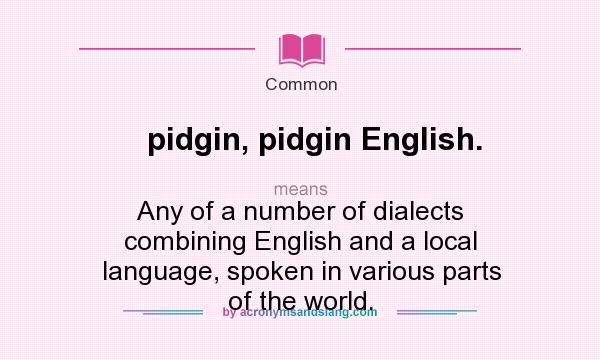
The sound of ‘pid-gin’ is phonologically very different from ‘biz-niss’, moreover there are several Cantonese sounds that would much more closely match it. However there is no solid evidence for this origin, but as Chinese Pidgin was used for business it is easy to see why this idea took hold. It is widely held that the origin of the word ‘pidgin’ comes from the Chinese attempt to pronounce the word ‘business’ (this is the official OED etymology). Brown ➚ available under a Creative Commons License ➚ Origin of the name ‘Pidgin’


Seen in the center background is the top of a monolithic stone fortress like building, the signature outline of the old Cantonese pawn shop. This image reveals the extensive canal system in old Canton (Guangzhou), though not as pervasive as those in Soochow (modern day Suzhou) c. This is just one of a host of misconceptions about ‘Pidgin English’ which deserve to be straightened out. Pidgin has acquired a condescending connotation that suggests it was a simplified language invented by the British for foreign barbarians to use.

Where do the terms ‘no can do’, ‘no pain, no gain’ and ‘long time no see’ come from? Well they all come from China via that strange linguistic curiosity - Chinese Pidgin English. Modern history People's Republic of China Future Leaders Government Space Exploration Economy Long March Republic of China May 4th Movement Language | Literary | Pidgin Pidgin English in China


 0 kommentar(er)
0 kommentar(er)
